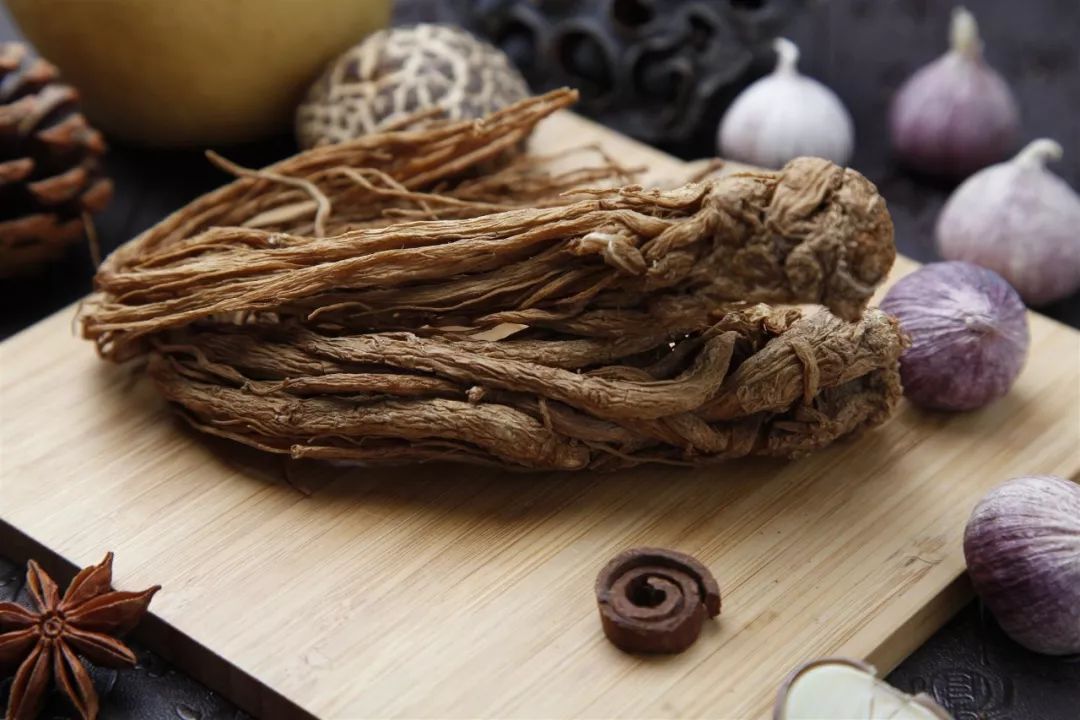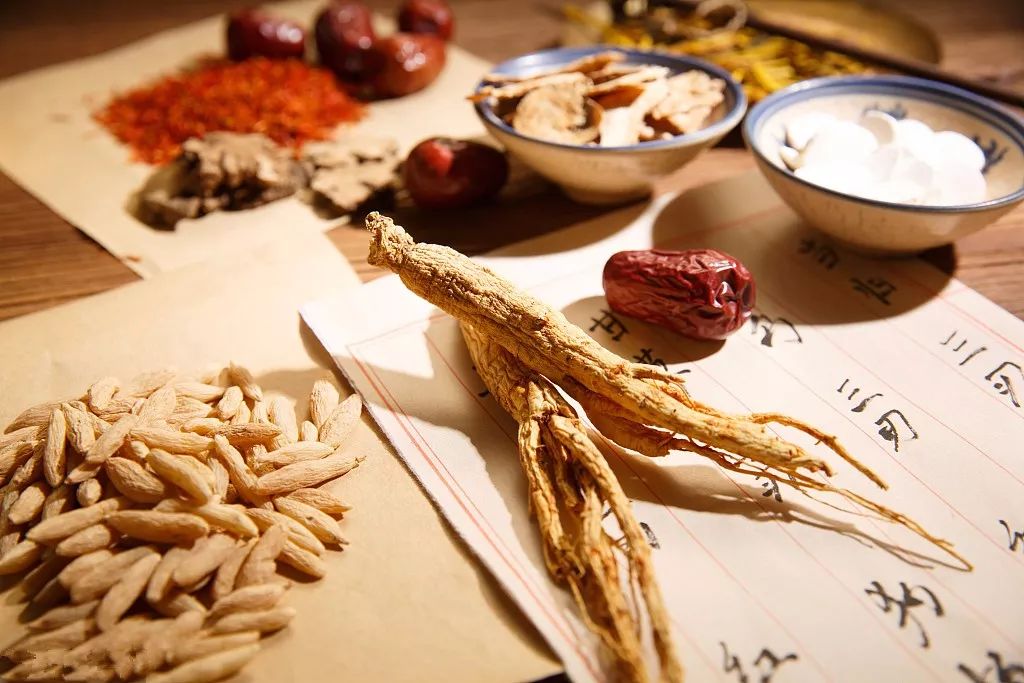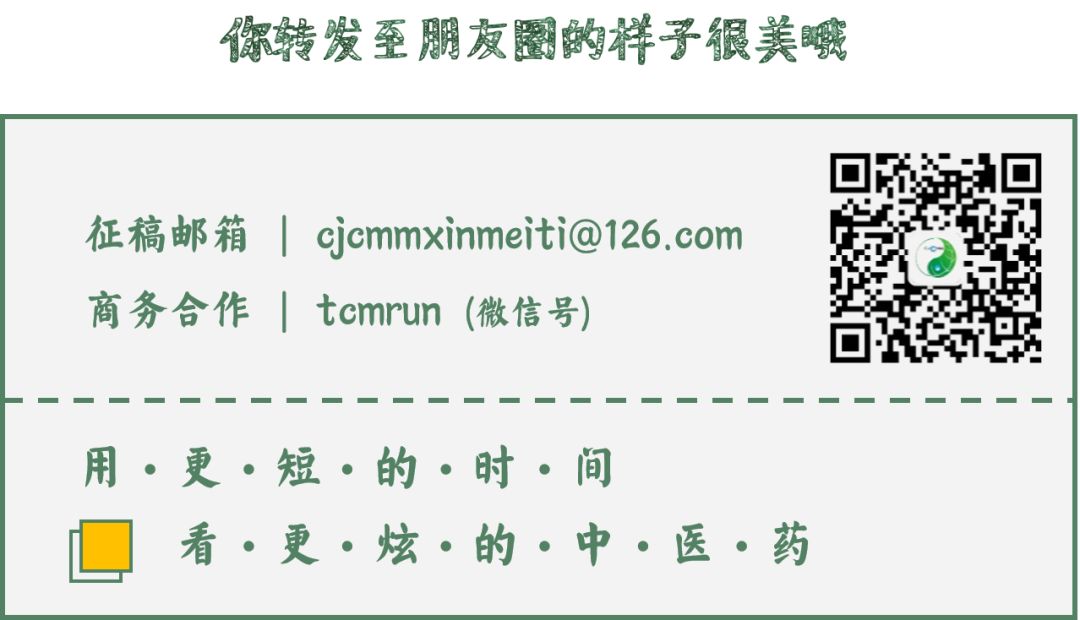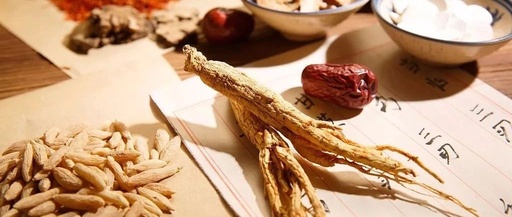
Follow the Chinese Herbal Medicine Journal for unique insights into Traditional Chinese Medicine.01
Since the Huang Di Nei Jing (Yellow Emperor’s Inner Canon), the importance of the body’s zheng qi (正气, vital energy) has been emphasized. A strong and abundant zheng qi protects against pathogenic influences, embodying the principle of “when zheng qi is present, pathogens cannot invade.” However, not everyone can maintain sufficient and robust zheng qi, leading to the saying, “where pathogens gather, the energy must be deficient.” This means that even if the body’s zheng qi is intact, it can still be harmed by overpowering pathogens. What should be done in such cases? The TCM approach is to strengthen zheng qi and expel pathogens!
Strengthening zheng qi and expelling pathogens involves two aspects: strengthening and expelling. Strengthening refers to nourishing the body’s zheng qi to cure diseases, enhance physical constitution, and improve the body’s resistance to pathogens, thereby achieving the goal of overcoming illness and restoring health. Expelling pathogens means eliminating harmful influences on health to cure diseases or remove pathogens, thus restoring health through the removal of pathogens and the restoration of zheng qi.
Although strengthening zheng qi and expelling pathogens are often combined, they are distinct concepts, intertwined in a complex relationship. Strengthening is aimed at expelling, as in “when zheng qi is strong, pathogens are expelled by themselves”; expelling is aimed at strengthening, as in “when pathogens are removed, zheng qi is naturally at peace.” However, the true strategy lies in effectively combining both.

02
Is there a classic formula that seamlessly integrates the principle of strengthening zheng qi and expelling pathogens? Indeed, there is: the ancient formula known as Ren Shen Bai Du San (人参败毒散, Ginseng Decoction to Overcome Pathogenic Influences). The earliest reference to Ren Shen Bai Du San is believed to be from the Xiao Er Yao Zheng Zhi Jue (小儿药证直诀, Essentials of Pediatric Medicine), while the Tai Ping Hui Min He Ji Ju Fang (太平惠民合剂局方, Formulas for the People’s Welfare) is recognized as its earliest source in academia.
What are the components of Ren Shen Bai Du San? According to records, the formula consists of: Chai Hu (柴胡, Bupleurum), Gan Cao (甘草, Licorice), Jie Geng (桔梗, Platycodon), Ren Shen (人参, Ginseng), Chuan Xiong (川芎, Ligusticum), Fu Ling (茯苓, Poria), Zhi Ke (枳壳, Bitter Orange), Qian Hu (前胡, Peucedanum), Qiang Huo (羌活, Notopterygium), and Du Huo (独活, Angelica). Each herb is used in equal amounts.
The specific method of preparation involves processing the above herbs and grinding them into a coarse powder. For each dose, take 2 qian (钱, a traditional weight unit) of the powder, boil it with one cup of water, adding a small amount of fresh ginger and mint during the boiling process. Boil until about 70% of the liquid remains, strain out the herb residue, and it is ready to drink. Notably, the method of consumption varies: “if cold symptoms are predominant, take it hot; if heat symptoms are predominant, take it warm.”
What are the effects of Ren Shen Bai Du San? What conditions is it suitable for? Ren Shen Bai Du San has the effects of strengthening zheng qi and expelling pathogens, promoting the flow of meridians, and dispersing external pathogenic influences. It also benefits qi and releases the exterior, dispelling wind and dampness. It is suitable for conditions such as cold damage, headache and neck stiffness, high fever with chills, body aches, cough with phlegm, nasal congestion with a heavy voice, wind-phlegm headache, and alternating chills and fever.

03
There is still debate regarding the composition of Ren Shen Bai Du San. Many practitioners throughout history have argued that the monarch herb is Qiang Huo rather than Ren Shen, while others assert that Ren Shen is the monarch herb instead of Qiang Huo. Notably, one of the four great masters of the warm disease school, Wu Ju Tong, stated, “Using Ren Shen as the monarch stabilizes the center; it leads the charge with Er Hu (二胡, two herbs) and Er Huo (二活, two activators) combined with Chuan Xiong, guiding the pathogens out from the half-exterior and half-interior state, as described by Yu’s analogy of reversing the current to row a boat. Zhi Ke promotes the qi of the middle jiao, while Fu Ling drains dampness from the middle jiao, Jie Geng opens the lungs and large intestine, and Gan Cao harmonizes the herbs.
The principle of simplicity is the law of development for all things in the universe, the essence of Chinese culture, and the philosophy of Daoism. The principle is so simple that it can be explained in just a few words. As Laozi said in the Dao De Jing: “The beginning of all things is simple, and their evolution is complex.” Simplicity is not only valued by philosophical schools such as Daoism and Confucianism but also represents a state of life.
Simplicity is the natural way, a high state of returning to simplicity. In this state of tranquility, selflessness, and unity with nature, one does not seek to achieve great power; the power naturally increases. One does not seek to cure diseases; the body and mind naturally adjust. One does not seek function; the function naturally manifests. When one does not seek the small and large circulations, the hundred meridians naturally flow smoothly. The deepest truths are the simplest and most ordinary truths. Transforming the most complex into the simplest is the highest wisdom. The greatest individuals appear noble simply because of their simplicity.
Simplicity in life is also essential. Enlightenment makes the profound simple, and simplicity makes the profound. From seeing a mountain as a mountain to seeing a mountain as a mountain again, the realm changes. From simplicity to complexity and back to simplicity is a process of sublimation. The meaning of life lies in simplicity. When one cultivates to a certain extent, one becomes indifferent to many things and simple. You can understand others, but others may not understand you. In fact, understanding is not as important as recognition.
Being meticulous in heart and simple in form is the ultimate question of the soul. Simplicity is not only a form of beauty but also a capability and a state. Seeing through without revealing is a high realm; seeing vaguely is clarity; clarity is not clarity, knowing the unknown, intentionally not seeing through is true clarity. Knowing that worldly matters cannot be fully understood is clarity; the clarity after confusion and the understanding after misunderstanding is a rare state of being.
“Simplicity is the wisdom of being human.” To do things well, one must simplify complex matters, which requires wisdom. Returning complicated matters to simplicity requires wisdom, ability, and determination. Wise individuals appreciate simplicity, thus avoiding the pursuit of fame and profit; they are not burdened by reputation and wealth. Indifference clarifies one’s aspirations, tranquility leads to far-reaching goals. We should live simply and work diligently, using wisdom to simplify difficulties.
For the sake of fame and profit, one should cast aside praise and blame, remaining pure like the innocence of childhood, and simple like the fertile land cultivated by ancestors. Only those with a calm heart can see the leisurely scene of “the setting sun illuminating the village, the cattle and sheep returning home” and hear the heavenly sounds of “the autumn breeze sending the chill, the bamboo dew dripping with clarity.” Tao Yuanming was such a person, which is why he could compose the famous line, “Picking chrysanthemums by the eastern fence, I leisurely see the southern mountain.” Ouyang Xiu was also such a person, which is why he could write the Record of the Drunken Old Man Pavilion even while in exile.
Simplicity is the ultimate principle of life. Simplicity is not material poverty but spiritual freedom; simplicity is not the emptiness of life but the purity of the soul. The principle of simplicity is that the highest truths are often the simplest. One must learn to live simply, act simply, and let go of selfish thoughts, transcending the cage of personal desires, truly forgetting one’s thoughts and consciousness, entering a state of selflessness.
Life’s complexity arises from confusion; resisting temptation with “benevolence” and resolving confusion with “wisdom” leads to clarity. Clarity is the mark of transitioning from complexity to simplicity in life. Among the vast waters, I only take a ladle to drink; in the myriad forms of life, one must remain steadfast. Joy leads to forgetting worries, simplicity preserves truth; this is the “great principle of simplicity” in life.
There is a story about simplicity and a peaceful heart: a traveler asked an old Daoist, “What did you do before enlightenment?” The old Daoist replied, “Chopping wood, carrying water, and cooking.” The traveler asked, “And after enlightenment?” The old Daoist replied, “Chopping wood, carrying water, and cooking.” The traveler asked again, “What does it mean to be enlightened?” The old Daoist replied, “Before enlightenment, while chopping wood, I thought about carrying water; while carrying water, I thought about cooking. After enlightenment, chopping wood is just chopping wood, carrying water is just carrying water, and cooking is just cooking.” The dialogue between the old Daoist and the traveler enlightens us that many profound truths are contained in extremely simple thoughts.
Simplicity in life is easy. A thousand people have a thousand ways of living and paths to take. After traversing time and life, one has many sentiments. Let go of everything, and be at ease; let go in the present, and be at ease. Many problems in life do not need to be held in the heart, and many burdens do not need to be shouldered. Only by letting go can one feel the joy of simple living and the exhilaration of a soaring spirit. To change certain things, one must first find oneself. We all have latent energy, easily obscured by habits, confused by time, and worn down by inertia. We should remember what needs to be remembered, forget what needs to be forgotten, change what can be changed, and accept what cannot be changed. We should face the past with minimal regret, the present with minimal waste, and the future with the most dreams.
The way of heaven and earth is simple and easy. Life is short; do not complicate everything, live simply. Once the grand play of life begins, regardless of how nervous you are, you must perform until the end. The greatest challenge in the process of growth is that some paths can only be walked in silence. Happy work and simple living are the keys to a happy life. One must learn to be content and joyful; all sorrow and pain, all things that cannot be relinquished, are merely transitions in life. Once you leap over them, you can become more splendid.
The best life is a simple life: a cup of tea, a table, a serene place, plain days, and a mind free of distractions. However, a simple life requires tremendous effort to enjoy it without worries. Overall, life is perfect; the imperfection lies in the mindset. Those who do not know how to appreciate will turn everything into flaws through criticism. Live simply, act naturally, grasp the balance, adapt to circumstances, and accept reality calmly; do not create trouble, do not fear trouble, do not regret or resent what you have done.
Life is a long struggle; some laugh at the beginning, while others win in the end. Try to smile, try to look back, relax yourself, do not force, do not be dejected, do not be restless. Live simply, follow your heart, follow your nature, and be the best version of yourself. Be content, smile, and remain calm; even if it is bitter and tiring, as long as you persist, your own scenery will eventually appear.
Life is not easy; it depends on how you live. Circumstances depend on mindset; when the mindset changes, circumstances will change. The more you demand from life, the more tense and complex you become, making life harder. Conversely, the less you demand from life, the easier it is to be satisfied and happy. The mountains and bright moon have no permanent owner; when you are free, you are the master. The principle of simplicity is to live in the present; being content leads to lasting joy.
Entering the tranquil state of no worries, a heart like a bright moon reveals the realm of tranquility; a calm heart naturally exudes grace and charm. In life, simplicity is the truest, silence is the most beautiful; the most enduring in life is not splendor but simplicity, not noise but quiet joy. Maintain a childlike heart; when unhappy, unreservedly share troubles with friends; when happy, laugh freely. Perhaps all worries will flow away in sharing, and all tension will be released in laughter. Live simply like a child, live happily, and maintain the original ecology of the soul; everything is beautiful.
There is always a story in life that one wants to tell but finds it hard to start, gradually composing a melody in the heart. People are like this; what they cannot obtain, they will always yearn for, and what they have lost will be felt as precious. The so-called gains and losses, relationships, scenery, and way stations all gradually fade in the dust of time. Although it is difficult to let go of some things, what does not belong to you will eventually drift away.
In a person’s life, many experiences are destined to be encountered. On the road of the mundane world, there are bright laughs, tears of grievance, naive persistence, confident successes, and awakening failures; each experience is precious. The richness of life comes from a compassionate heart, and the beauty of life comes from having a peaceful heart. A simple life brings ease and joy, and simple thoughts bring peace and tranquility. Because of simplicity, one deeply understands the lightness of life; because of simplicity, one perceives the tranquility of the soul.
Overall, Ren Shen Bai Du San truly achieves the perfect combination of strengthening zheng qi and expelling pathogens, as noted by the Ming dynasty physician Wu He Gao, who stated that this formula “nourishes zheng qi and defeats pathogenic influences, hence the name Bai Du (defeating toxins).” Due to these unique effects, ancient physicians remarked, “At the onset of epidemics, use Ren Shen Bai Du San” (as seen in Zhang’s Medical Communication), and it is commonly used today for colds, influenza, bronchitis, rheumatic arthritis, dysentery, allergic dermatitis, eczema, and other diseases, particularly for those with external wind-cold-dampness combined with qi deficiency.
In summary, Ren Shen Bai Du San can be used not only for colds, coughs, headaches, and fevers but also has many more applications. It can relieve external wind-cold-dampness while also benefiting those with qi deficiency. This ancient formula is rightly hailed as the “premier formula for strengthening zheng qi and expelling pathogens.”
Note:This article does not represent the views of this journal.
Source | Internet
Editor | Lingzi
Review | Xiao Ye


